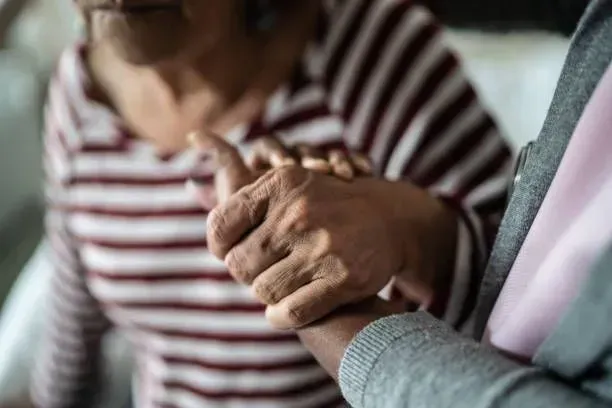6 Common Misconceptions About Hospice Care
According to Johns Hopkins "the word "hospice" means "a place of shelter." Today, the "place of shelter" is not so much a physical location as it is a service that helps a patient who is terminally ill to die with dignity and peace. Hospice care is also the type of care provided to support a terminally ill patient at home or wherever he or she lives. Care usually involves relieving troublesome symptoms and providing psychological and social support for the patient and family. The goal of hospice care is to not only provide the terminally ill patient and the family with a comfortable death experience, but to also enable the person to live to the fullest, even with a terminal prognosis.
To qualify for hospice care, a patient usually has a life expectancy of less than 6 months. Research has shown that hospice care at home helps the entire family. Family members are encouraged to take an active role in providing supportive care to the patient. In doing so, the family experiences fewer feelings of helplessness and the patient is not relying solely on strangers for all of his or her care."

In the realm of healthcare, misconceptions often overshadow the essential services that can profoundly impact the lives of individuals facing illnesses. Hospice care, a vital aspect of health care and support, is unfortunately burdened by various myths that hinder its understanding and utilization. At 7 Day Home Care, we recognize the importance of debunking these misconceptions to foster a more informed perspective on hospice. Join us as we review and unravel the truth behind six common misconceptions about hospice care, shedding light on the compassionate and holistic nature of this invaluable service. Understanding hospice is not just about dispelling myths; it's about embracing a compassionate approach to care that prioritizes dignity, comfort, and support for both patients and their families.
Hospice care plays a crucial role in providing comfort and support to individuals facing life-limiting illnesses. Despite its importance, several misconceptions surround hospice, leading to misunderstandings and hesitation in seeking such care. Let's debunk six common misconceptions about hospice to promote a clearer understanding.
6 Common Misconceptions About Hospice Care
- Hospice is Only for the Final Days: One prevalent misconception is that hospice is reserved for the very end of life. In reality, hospice care is most effective when initiated earlier in the disease trajectory. It focuses on enhancing the quality of life, providing physical and emotional support for patients and their families. Early involvement can lead to better symptom management and a more comfortable end-of-life experience. Contrary to a common misconception, hospice care is not exclusively reserved for the final days of life; in fact, its effectiveness is significantly enhanced when initiated earlier in the trajectory of a terminal illness. Hospice is a comprehensive and proactive approach that focuses on improving the overall quality of life for individuals facing life-limiting conditions. By starting hospice care earlier, patients and their families can benefit from expert symptom management, emotional support, and the opportunity to create meaningful moments together. Early involvement in hospice allows for better coordination of care, ensuring that individuals receive the necessary support and resources throughout the entire course of their illness. Emphasizing comfort, dignity, and personalized care, hospice becomes a valuable resource that extends beyond the final days, offering a compassionate and holistic approach to end-of-life support.
- Hospice Means Giving Up Hope: Some individuals associate hospice with giving up on treatment and hope. However, hospice is about shifting the focus from curative measures to enhancing the patient's remaining time. It emphasizes creating meaningful moments and ensuring a dignified and peaceful transition. Hospice care aims to empower patients and families to make informed choices about their care preferences. Hospice care is unequivocally not about giving up hope; rather, it redefines hope in the context of a terminal illness. Instead of focusing solely on curative measures, hospice shifts its emphasis towards enhancing the quality of life, providing comfort, and promoting dignity. It empowers individuals to redefine hope as finding meaning, creating precious moments, and cherishing the time they have left. Hospice encourages a holistic approach, addressing not only the physical aspects of the illness but also the emotional, spiritual, and psychosocial dimensions. It acknowledges the realities of the situation while fostering an environment of support, compassion, and understanding. In this way, hospice care embraces a different kind of hope—one that transcends medical interventions and allows individuals to navigate their end-of-life journey with grace, surrounded by care and surrounded by the love of their families and friends.
- Hospice is Exclusively for Cancer Patients: While hospice is often associated with cancer care, it is not limited to specific illnesses. It caters to a wide range of life-limiting conditions, including heart failure, respiratory diseases, and neurological disorders. Hospice professionals are trained to address diverse medical needs, ensuring tailored care plans for individuals with various diagnoses. Hospice care is designed for individuals facing a life-limiting illness with a prognosis of six months or less if the disease follows its normal course. Eligibility for hospice is not limited to a specific age group, and individuals of all ages may qualify based on their medical condition. Common qualifying medical conditions include advanced cancer, heart failure, chronic obstructive pulmonary disease (COPD), Alzheimer's disease and other forms of dementia, amyotrophic lateral sclerosis (ALS), and end-stage renal disease. Additionally, individuals with terminal illnesses beyond the mentioned conditions may also be eligible, provided they meet the criteria for a limited life expectancy. The focus of hospice is on providing holistic care to enhance the quality of life during the final stages of an illness, ensuring that individuals and their families receive the support and comfort they need.
- Hospice is Only for the Elderly: Another misconception is that hospice care is exclusively for the elderly. In reality, hospice is available to individuals of all ages facing terminal illnesses. Pediatric hospice care, for example, supports families dealing with the complexities of caring for a seriously ill child. Hospice services are adaptable to meet the unique needs of patients across different age groups. Hospice care is a compassionate and inclusive approach that extends its support to individuals of all ages, dispelling the misconception that it is exclusively for the elderly. Terminal illnesses do not discriminate based on age, and hospice services cater to the diverse needs of patients facing life-limiting conditions, regardless of their age. Pediatric hospice care, for instance, offers specialized support for seriously ill children and their families, recognizing the unique challenges they face. Young adults and individuals in the prime of their lives may also benefit from hospice care when confronting terminal illnesses. By providing personalized and comprehensive support, hospice ensures that individuals of any age receive the comfort, dignity, and holistic care needed to navigate their end-of-life journey with compassion and understanding.
- Hospice is a Place, Not a Service: Many people mistakenly believe that hospice refers to a physical location. On the contrary, hospice is a comprehensive approach to care that can be provided in various settings, including the patient's home, assisted living facilities, or hospice centers. The focus is on creating a supportive environment wherever the patient feels most comfortable. Opting for hospice care at home brings a multitude of benefits, providing a familiar and comforting environment for individuals facing terminal illnesses. Home hospice care allows patients to receive personalized and compassionate support while surrounded by their loved ones, fostering a sense of peace and tranquility. Being in a familiar setting often contributes to a higher quality of life during the final stages, promoting emotional well-being and reducing stress. Additionally, home hospice care facilitates more flexible and individualized care plans, tailored to the specific needs and preferences of the patient. Family members also benefit from the convenience of being actively involved in the caregiving process, contributing to a stronger support system. The continuity of care at home enhances the overall comfort and dignity of the end-of-life journey, making it a profoundly meaningful and compassionate choice for those seeking hospice support.
- Hospice is Solely for Patients: Hospice care extends beyond the patient to offer support to their families and caregivers. It provides counseling, education, and bereavement services to help loved ones navigate the emotional challenges associated with end-of-life care. Hospice aims to foster a compassionate and holistic support system for everyone involved. Hospice care extends its profound impact beyond the patient, offering immeasurable benefits to family and friends navigating the complexities of a loved one's terminal illness. By providing comprehensive support, hospice care addresses the emotional, spiritual, and practical needs of those close to the patient. Families often find solace in the expert guidance of hospice professionals, who offer counseling, education, and bereavement services. This holistic approach fosters an environment where loved ones can navigate the emotional challenges with greater resilience and understanding. Additionally, hospice care encourages open communication, creating meaningful moments and opportunities for shared experiences, ultimately strengthening the bonds between family members and friends during a challenging time. The compassionate support offered by hospice not only enhances the quality of life for the patient but also provides a crucial lifeline for those who surround them, fostering a sense of unity and comfort in the face of adversity.
By dispelling these misconceptions, we can encourage more informed decisions about hospice care. Understanding its true nature empowers individuals and families to make choices that align with their values, ensuring a more compassionate and dignified end-of-life experience.
Our exploration of the misconceptions surrounding hospice care, 7 Day Home Care invites you to embrace a more enlightened perspective on this invaluable service. By dispelling these myths, we aim to empower individuals and families to make informed decisions about end-of-life care. Our commitment at 7 Day Home Care extends beyond debunking misconceptions; we provide in-home care and hospice support services in Manhattan, Queens, Brooklyn, Nassau County, and Suffolk County, New York. We believe in the importance of compassionate and personalized care, ensuring that every individual facing a serious or terminal illness receives the support they need for a dignified and comfortable journey. Let us navigate this path together, promoting understanding and acceptance in the realm of hospice care. To learn more about our in-home care and hospice support services with our highly experienced and trained Home Health Aides, please call 516-408-0034 or visit 7 Day Home Care.
Brian Callahan
7 Day Home Care










